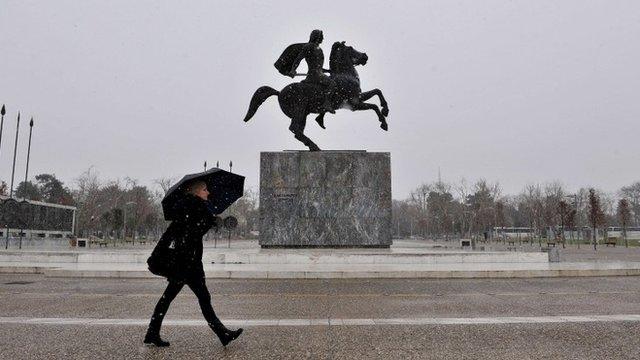Greek bailout talks: The Dangerous Game
- Published
- comments
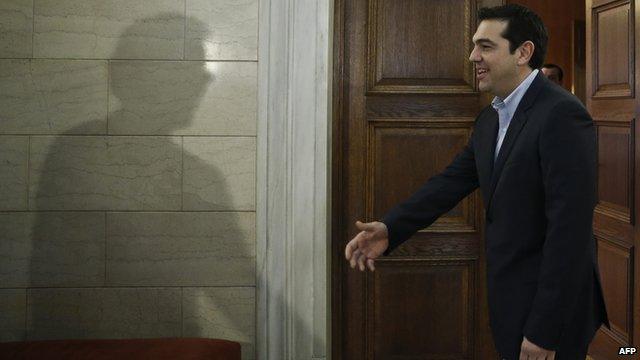
Greek PM Alexis Tsipras will need greater eurozone support if he is to secure a better bailout deal
Neither Athens nor its European partners want Greece to leave the eurozone, but the risk of a miscalculation is growing.
On both sides there is suspicion and a degree of resentment.
Even before eurozone ministers went into the talks, some of them were muttering that the new Greek government had failed to put concrete proposals on the table.
The divide remains as it was. Greece wants a bridging loan to tide it over for the next four months whilst more detailed negotiations take place about future financing.
The eurozone ministers want Greece to continue with the existing bailout with its tough conditions. In that event they promise there could be some flexibility in easing some of the austerity measures. Athens is wary of what "some flexibility" means.
Facts on the ground
For the new ministers in Athens accepting an extension of the bailout programme would be crossing a red line.
How, asked Finance Minister Yanis Varoufakis, could they complete a programme which had "failed to provide stability to Greece" and which they had been elected to challenge. Democracy, in his view, had changed the facts on the ground.
Mr Varoufakis said: "Europe is going through a difficult process of understanding that Greece has a new government committed to changing a programme that has clearly failed in the eyes of everyone who doesn't have a vested interest."
The eurozone ministers do not accept that.
As an article of faith they insist that agreements made by the previous Greek government must be upheld.
They are not shy in reminding Greece that they represent voters too, who are reluctant to provide any further assistance to Greece.
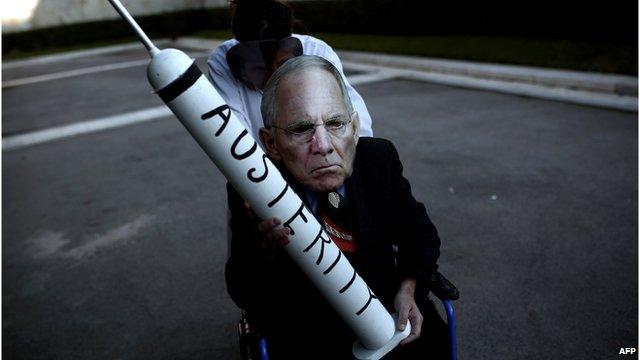
Government supporters have taken to the streets of Athens demanding an end to austerity measures
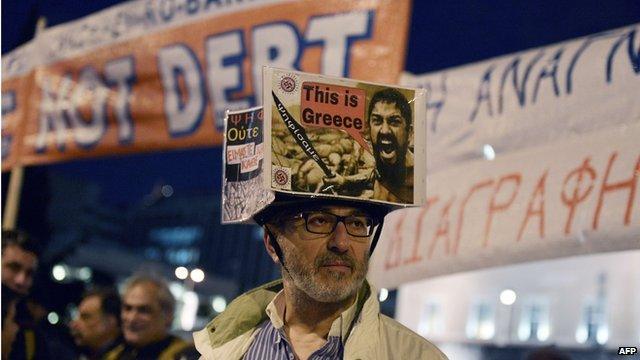
The demonstrators want the government to continue to fight their corner
Greek bank losses
The ministers believe they have to insist on Greece committing to the existing bailout deal to demonstrate the eurozone's credibility and that it sticks to the rules.
The Germans believe that the bailout, with its austerity conditions, is the only way of ensuring that Greece sticks to reforms.
The pressures on the Greek government are enormous. If they do not request an extension to the bailout programme by Friday they face having to meet their debt commitments on their own. There would be no financial backstop.
By the end of the month the existing bailout agreement would have expired. They risk running out of money in weeks.
Already public finances look vulnerable. The Greek banks are losing around €2bn (£1.47bn) in deposits a week.
Capital flight
There is another player at the table: the European Central Bank. It will meet on Wednesday to decide whether to continue with the Emergency Liquidity Assistance (ELA) to the Greek central bank.
If that lifeline was withdrawn, because the ECB doubted a deal would be done, then Greece would be looking at having to leave the eurozone. In those circumstances it is easy to envisage bank runs, capital flight and capital controls.
So Athens has every incentive to reach a deal. And, despite the ultimatum, the eurozone finance ministers are desperate to avoid Greece exiting the eurozone.
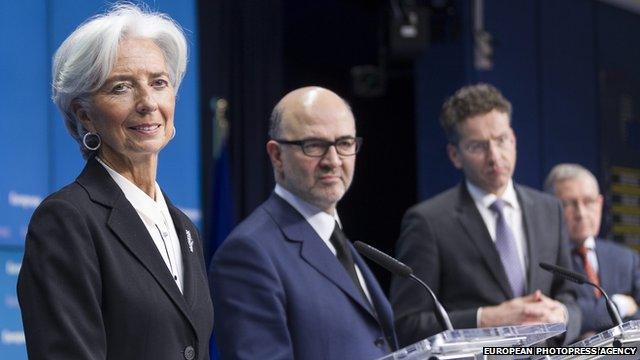
Greece's creditors don't agree with the assertion that the international bailout programme is failing
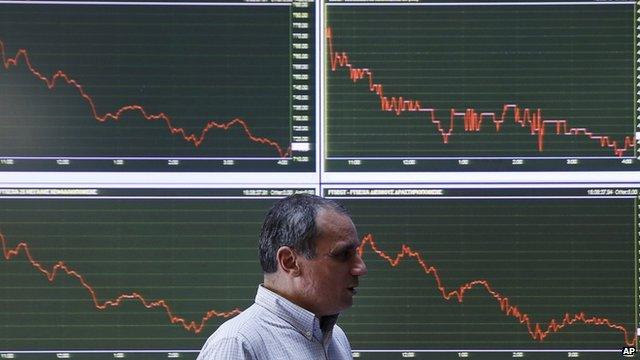
Greece could still be forced out of the eurozone entirely, causing uncertainty in the financial markets
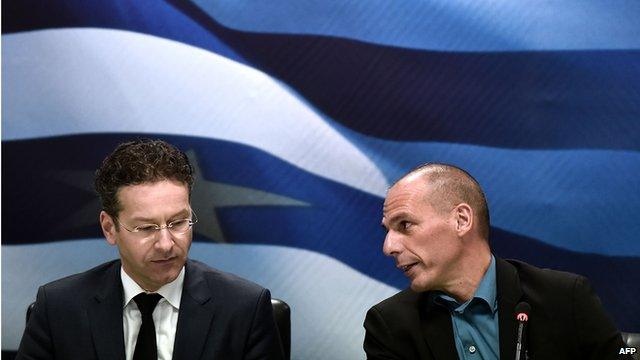
Finance Minister Yanis Varoufakis (R) faces mounting pressure to reach a deal
'Find a compromise'
Despite claims from Berlin that it could live with a Greek exit, the truth is different. A Greek exit would be unpredictable.
Although the risks of contagion are nothing like as great as in 2012 they could not be ruled out.
And a Greek departure would destroy once and for all the claim that the eurozone was permanent.
So already there are calls for compromise. Luxembourg Finance Minister Pierre Gramegna said: "We can't remain in a blockade, so everyone has to move a bit, water down demands so we can find a compromise."
What might that look like? The Greek government is prepared to agree to an extension of the loan agreement for six months but not the bailout programme.
Athens has already said it would be prepared to put on ice some of its anti-austerity plans. It would require some creative thinking and wording but it offers the best hope for a deal.
The eurozone finance ministers would have to accept that Greece cannot go on as before.
The new Greek government would have to accept it cannot adopt all the measures it promised.
As one Greek paper put it, it is "96 hours until an agreement or an accident".
- Published14 May 2012

- Published12 February 2015
- Published11 February 2015
